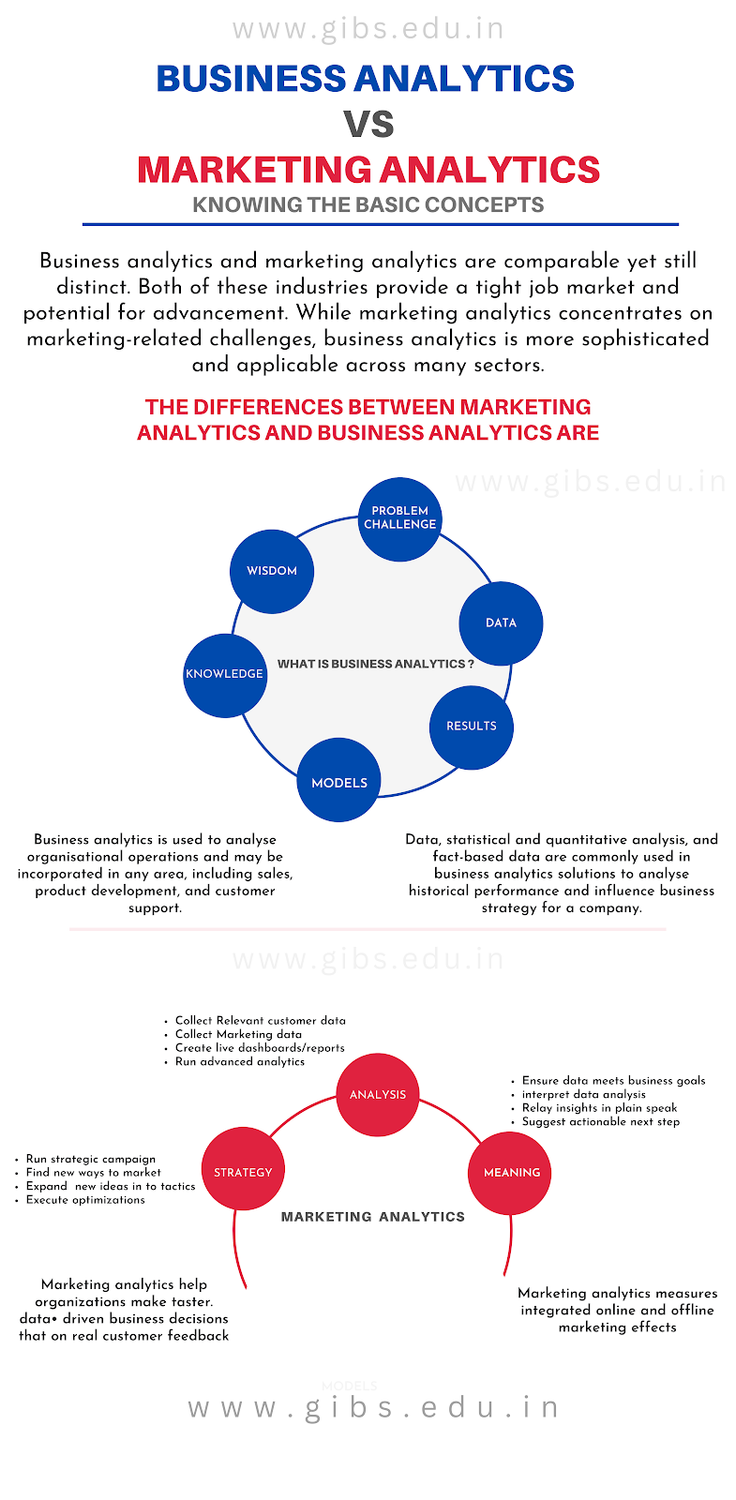Business analytics and marketing analytics are two different but related fields that use data analysis to inform decision-making. Here are the key differences between them:
- Focus: Business analytics is a broader field that encompasses various areas of business operations, such as finance, operations, supply chain, and human resources. Marketing analytics, on the other hand, focuses specifically on marketing and advertising activities, such as campaign performance, customer behavior, and ROI.
- Data Sources: Business analytics may use a wide range of data sources, including financial data, customer data, and operational data. Marketing analytics, however, relies more heavily on marketing-specific data sources such as web analytics, social media metrics, and advertising metrics.
- Objectives: The objective of business analytics is to help organizations make informed business decisions, optimize processes, and identify areas for improvement. Marketing analytics, on the other hand, is geared towards optimizing marketing efforts and campaigns, improving customer engagement, and ultimately increasing revenue.
- Methods: Business analytics often uses statistical and data modeling techniques to uncover patterns and insights in data. Marketing analytics also employs statistical methods but also utilizes specific marketing methodologies, such as segmentation analysis and customer journey mapping.
- Outputs: The outputs of business analytics include reports, dashboards, and insights that help executives and decision-makers understand the performance of their organization. The outputs of marketing analytics may include reports on campaign performance, customer segmentation, customer lifetime value, and other marketing metrics.
In summary, business analytics and marketing analytics are both critical components of any successful business strategy, but they have different focuses, data sources, objectives, methods, and outputs.
Learn More Programme : www.gibs.edu.in
Enroll Now in Programme : https://admission.gibsbschool.com/

